This appendix contains summaries of the committee's visits
to the West Kimberley Regional Prison (Western Australia) and the Barkly Work
Camp (Northern Territory).
Site visit to West Kimberley Regional Prison
Introduction
During the committee's public hearings in the Kimberley
region of Western Australia (WA), the committee travelled to the West Kimberley
Regional Prison (WKRP) on 6 July 2018 to receive a tour of the facility, a
briefing from staff members and learn more about the mental health services
available at the prison. Senators Siewert, O'Neill and Pratt participated in
the site visit.
Profile of the WKRP
WKRP is located approximately 7 kilometres outside of Derby,
a small town on the north-west coast of WA. Derby has a population of
approximately 3511 people, with 49.4 per cent of people identifying as
Aboriginal and/or Torres Strait Islander.[1]
The WKRP is considered a unique facility due to its design
and operating philosophy which is premised upon Aboriginal cultures and values
as far as is possible. The prison's philosophy includes recognition and
acceptance of cultural, kinship, family and community responsibilities as well
as spiritual connection to land.
Description of the facilities
The WKRP consists of numerous administration, facility and
accommodation blocks which surround a central sports oval. The WKRP features
two secure compounds, one which houses only women, and another which houses
male prisoners who have recently been received into the prison or have a high
security rating. The remaining accommodation blocks house men. The committee
received a tour of the women's compound and one of the men's accommodation
blocks.
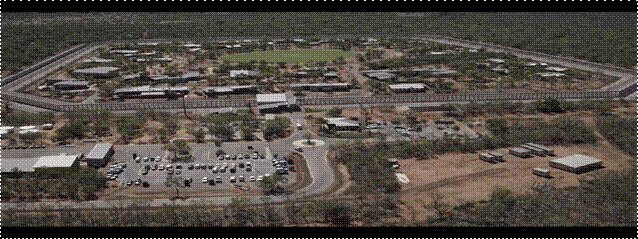
The accommodation areas include several houses which each
accommodate 8-11 prisoners on average, with a total capacity of approximately
223 prisoners. Prisoners are grouped according to their security rating as well
as family ties and language where possible. The houses include a shared
kitchen, living area and bathroom facilities, and 4-5 shared bedrooms. The
houses are spread throughout a common outdoor space which features boab trees
and native plants and grasses, mirroring the bushland which surrounds the WKRP.
Amongst other facilities, the WKRP also includes:
- Education and Program buildings;
- Workshop buildings;
- Main kitchen building;
- Spiritual Centre;
- Outdoor seating areas and recreation facilities;
- Health Centre (medical) building;
- Secure multi-purpose type building; and
- Administration area with staff offices.
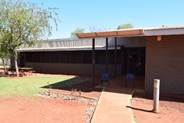
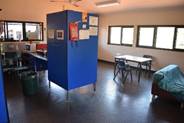
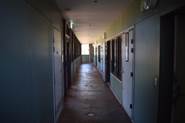
Description of services provided
Following the tour, the committee received a briefing from
staff including the Clinical Nurse Manager, Clinical Nurse Specialist Mental Health,
and Transitional Manager regarding the mental health and other services
provided at WKRP. The committee heard that three of the biggest factors which
contribute to prisoners re-offending were drug and alcohol addiction, mental
health issues and cognitive disability.
The WKRP has a doctor on site four days per week, a
counsellor and a psychiatrist visits the facility for half a day every six
weeks. A number of prisoners at WKRP receive mental health treatment including
regular counselling, however, only prisoners in an acute state are seen by the
visiting psychiatrist when necessary. The psychiatrist is also able to
prescribe medication for a prisoner which is then administered by WKRP staff.
Staff explained that some prisoners have symptoms of
psychosis when they arrive at the prison but that this is often as a result of
drug use. Following approximately six weeks in the prison, symptoms improve as
prisoners undergo detox and receive mental health treatment from staff. Staff
reflected that for some prisoners, it is easier for them to find themselves in
prison than receive mental health care in the community. At WKRP, prisoners
receive treatment for their mental health issues, have an established routine,
receive regular meals and are able to take a break from pressures in the community
such as relationships or drug and alcohol addiction.
During the discussion, staff noted that a number of the
prisoners' mental health illnesses related to a disability, such as an acquired
brain injury or the effects of foetal alcohol spectrum disorder, but that the
interaction of mental health services and disability services was complex. In
particular, staff advised there was confusion regarding the roll out of the
National Disability Insurance Scheme (NDIS) in the Kimberley region and how
prisoners eligible for the NDIS would access services once in the community.
In addition to the mental health services provided, the
committee also heard about transition arrangements for prisoners returning to
their communities. The committee heard about a number of difficulties staff
face when making arrangements for prisoners including a lack of wrap-around
support services, changing Centrelink requirements and barriers to opening a
bank account for prisoners. Where appropriate, prisoners are referred to the
Kimberley Mental Health and Drugs Service to assist with their transition back
into their community and to continue the mental health treatment received in
prison.
Impact of services on prisoners
The committee met with two prisoners who spoke about their
experience with mental illness and mental health services both inside and
outside of the prison. Each of the prisoners the committee spoke with felt that
the mental health treatment they had received whilst at WKRP was more effective
than the limited mental health services they had been able to access in their
respective communities.
Each of the prisoners reflected on how their history of
mental illness affected their behaviour and had contributed to their offending.
The committee heard that after accessing the mental health services available
at WKRP, the prisoners had developed strategies for how to modify their
behaviour and improve their mental health.
The committee heard that cultural understanding was integral
to the treatment the prisoners had received for their mental health. The Clinical
Nurse Specialist Mental Health at WKRP is of Maori heritage. The prisoners
explained they had been able to establish a relationship built on trust and
culture with the Mental Health Nurse by each sharing aspects of their Aboriginal
and Torres Strait Islander culture and Maori culture. This mutual understanding
enabled staff to tailor mental health treatment to each prisoner and that the
prisoners were more receptive to the counselling they received.
Both prisoners were confident that they would seek ongoing
support for their mental health when they returned to their communities. The
prisoners explained that it can take time to find the right mental health
service for an individual but that it is important to persevere and take the
time to build a relationship and establish trust with a health professional.
Acknowledgements
On behalf of the committee, Senator Siewert thanked the
prisoners and staff of the WKRP for speaking to the committee and facilitating
their visit.
Site visit to Barkly Work Camp
Introduction
Before the committee's public hearing in Alice Springs on 10
July, the committee travelled to the Barkly Work Camp (BWC), Tennant Creek, to
conduct a site visit of the facility.
The committee was greeted at the Tennant Creek airport by
Kay Horsburgh, Officer in Charge and Chief Correctional Officer, and were
provided with a briefing and tour of the BWC. Senators Siewert and O'Neill
participated in the site visit.
Profile of the BWC
The BWC was opened in 2011 as a partnership between the Northern
Territory Correctional Services and Tennant Creek and Barkly Region communities
in conjunction with Native Title holders, the Patta Aboriginal Corporation.
The BWC is an open and low-security correctional facility
for adult male prisoners, located less than 4 kilometres from the Tennant Creek
town centre. It has a focus on rehabilitation and reparation instead of
traditional forms of incarceration, giving prisoners opportunities to develop
work readiness and life skills.
Originally built to house 50 prisoners, at time of the visit
the BWC housed a total of 74 prisoners, with plans to expand capacity to 96
prisoners. The majority of prisoners who have transitioned through the BWC
since its opening have been Aboriginal and Torres Strait Islander people.
The BWC aims to accommodate prisoners who have family or
community ties to the Barkly region. At the time of the committee's visit,
around 50 per cent of the prisoner population had family or community ties to
the Barkly region.
Description of the facilities
The BWC consists of several structures surrounding a central
recreational yard, including:
- accommodation blocks for prisoners, each of which consists of an
air-conditioned shared space with kitchenette facilities, adjoined by several
shared bedrooms with ensuite bathrooms;
- an Elders' visiting centre;
- a covered visiting space;
- kitchen building;
- laundry building;
- training and equipment sheds;
- vegetable garden; and
- an administration area with staff offices and accommodation.
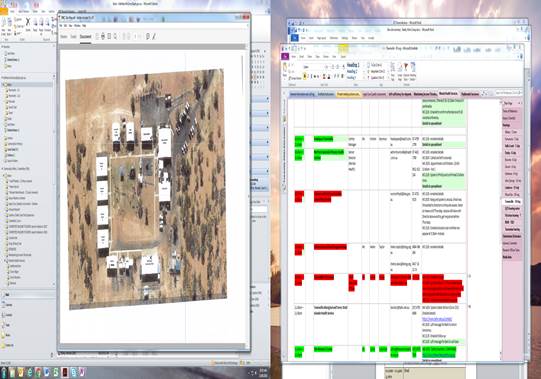
Programs at BWC
The BWC provides opportunities for prisoners to reintegrate
back into the community and provide reparation to the community for their
offending behaviour.
Prisoners participate in paid employment, via the Sentenced
to a Job program, and voluntary employment, including reparation works for the
Barkly Regional Council and not-for-profit organisations, such as regional
rodeos and shows. For those prisoners participating in Sentenced to a Job, some
of their wage goes towards board and lodging for their place at the camp and
any fines they owe, while 5 per cent goes to Victims of Crime Northern
Territory. The rest of their wage is held in trust until they are released, or
can be paid to their family.
Some of the work readiness and life skills programs offered
by BWC include: training in chain saws and small motors; construction 'White
Card'; AFL umpiring; pre-tertiary certificates delivered through University of
Southern Queensland; and driver education. Prisoners also participate in the
local football league.
While the BWC does not provide specific mental health
services for prisoners, it does facilitate a number of support programs for
social and emotional wellbeing, including:
- a men's therapeutic life skills program, delivered by
Relationships Australia;
- Codes 4 Life, delivered by Desert Knowledge Australia;
-
a family violence program; and
- a visiting Elders program.
Prisoners requiring mental health support, or complex
medical support such as alcohol and other drugs programs, are transferred out of
the BWC to receive those supports in the Alice Springs Correctional Centre.
Impact of the BWC programs on prisoners
The committee met with prisoners living and working the BWC.
Prisoners described some of the social issues in their communities and the behaviours
which led to their arrest and imprisonment.
Staff at the facility told the committee that living
conditions at home are difficult or bad for many prisoners, with many
communities in the Barkly region facing significant issues with alcohol and violence,
and that there is a good culture within the BWC of prisoners encouraging each
other to 'keep the peace' as they understand that placement at BWC is a
privilege.
The committee heard how prisoners at the BWC benefit from
being closer to their communities and enjoy more frequent visits from their
families, compared to when they were in the Alice Springs Correctional Centre.
Prisoners who spoke with the committee explained that they
hoped to use the skills they had learned in the BWC to find work in Tennant
Creek, or in their home communities, once their sentences are served.
Acknowledgements
On behalf of the committee, Senator Siewert thanked the
prisoners and staff of the BWC for warmly hosting the committee's visit.
Navigation: Previous Page | Contents | Next Page